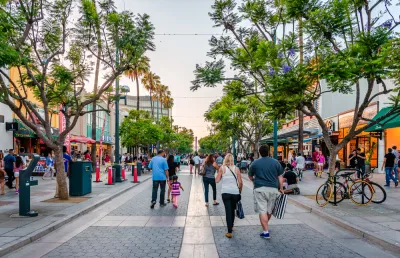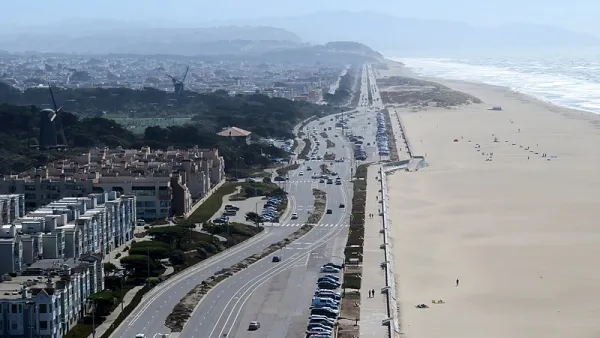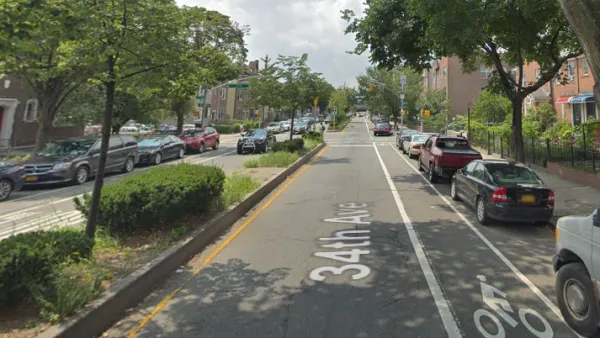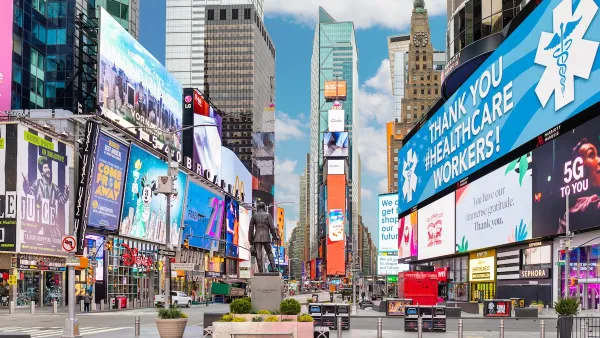The growth of pedestrianized spaces and car-free streets depends on a transformational shift in thinking about what—and who—public spaces and streets are for.

The fierce debate over how to use public space continues as cities weigh the future of the ‘open streets’ initiatives that gained popularity during the pandemic. Reis Thebault outlines the ongoing issue in The Washington Post.
Over the last year alone, major U.S. cities doubled-down on plans to restrict driving on main streets. Municipalities from Michigan to Washington, D.C., banned right turns at red lights. Voters earmarked billions for public transit projects. Officials unveiled hundreds of miles of new bike lanes. New York City proposed a new tax on motorists, and California relaxed jaywalking restrictions and freed up land once reserved for parking spaces.
These nationwide actions signal a shift in how we view public space, which has for decades been largely devoted to accommodating cars and driving. Change hasn’t come without controversy, but car-free streets are gaining widespread public support and momentum.
The article points to the heated fight over car access to San Francisco’s JFK Promenade (nee JFK Drive), a 1.5-mile stretch of road in Golden Gate Park. Last November, “More than 60 percent of voters approved a measure permanently banning cars from part of JFK Drive, while a similar number rejected a competing initiative that would have allowed cars to return to stretches of Golden Gate Park and the Great Highway, another popular city roadway that was partially closed at the onset of the pandemic.”
FULL STORY: Inside the movement to remake America’s city streets

Analysis: Cybertruck Fatality Rate Far Exceeds That of Ford Pinto
The Tesla Cybertruck was recalled seven times last year.

National Parks Layoffs Will Cause Communities to Lose Billions
Thousands of essential park workers were laid off this week, just before the busy spring break season.

Retro-silient?: America’s First “Eco-burb,” The Woodlands Turns 50
A master-planned community north of Houston offers lessons on green infrastructure and resilient design, but falls short of its founder’s lofty affordability and walkability goals.

Test News Post 1
This is a summary

Analysis: Cybertruck Fatality Rate Far Exceeds That of Ford Pinto
The Tesla Cybertruck was recalled seven times last year.

Test News Headline 46
Test for the image on the front page.
Urban Design for Planners 1: Software Tools
This six-course series explores essential urban design concepts using open source software and equips planners with the tools they need to participate fully in the urban design process.
Planning for Universal Design
Learn the tools for implementing Universal Design in planning regulations.
EMC Planning Group, Inc.
Planetizen
Planetizen
Mpact (formerly Rail~Volution)
Great Falls Development Authority, Inc.
HUDs Office of Policy Development and Research
NYU Wagner Graduate School of Public Service




























